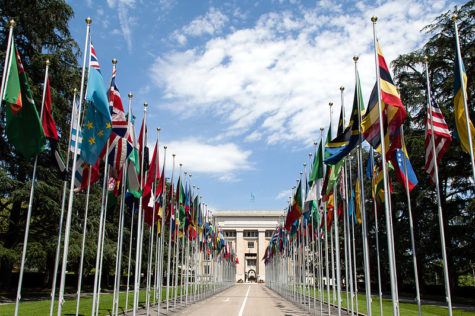
On September 17, 2020, the States parties to the International Covenant on Civil and Political Rights (ICCPR) filled nine seats on the United Nations Human Rights Committee. [Centre for Civil and Political Rights] Nine electees will begin four-year terms on January 1, 2021, while one additional electee will immediately fill a vacancy in a term ending on December 31, 2020. The elections will result in a changeover in six seats on the Committee; five States did not renominate their nationals who are current members of the Committee, and the member renominated by Mauritania was not elected. Current members who were not renominated include Yuval Shany (Israel) and Christof Heyns (South Africa), who first joined the Committee in 2013 and 2017, respectively. The election had been originally scheduled for June 15, but was postponed due to the COVID-19 pandemic. See UN Secretary-General, Note Verbale, 20 Dec. 2019. UN Secretary-General, Note Verbale 2, 9 Sept. 2020.
Outcome of Election
States parties elected the candidates nominated (or renominated) by Canada, Egypt, Ethiopia, Morocco, Paraguay, Portugal, South Korea, Spain, and Togo. Marcia V.J. Kran (Canada), Tania María Abdo Rocholl (Paraguay), and José Manuel Santos Pais (Portugal) were each elected to the Committee in 2016, and will begin their second terms on the Human Rights Committee in 2021. See OHCHR, Information on Human Rights Committee Members from 1977 to 2020. Current members’ CVs are available from the OHCHR webpage on the election, and from the Centre for Civil and Political Rights’ webpage.
States parties did not elect the candidates nominated by Germany, Mauritania, Serbia, or Turkey. While States parties elected the United States’ candidate, David H. Moore, to fill a vacant seat through December 31, 2020, they rejected him for a four-year term. See OHCHR, Human Rights Committee: 38th Meeting of States Parties. Bahrain and Cameroon withdrew their candidates – Khalifa Yusuf Ahmed Al Kaabi and Alfred Fusi Suh – before the election.
The six incoming members of the Committee are: Wafaa Ashraf Moharram Bassim (Egypt), Imeru Tamerat Yigezu (Ethiopia), Mahjoub El Haiba (Morocco), Carlos Gómez Martínez (Spain), Changrok Soh (South Korea), and Kobauyah Tchamdja Kpattcha (Togo). The new members’ CVs are available from the OHCHR webpage on the election. All of the incoming members were educated as lawyers and have been involved in human rights or the rule of law in varying capacities and degrees. Mahjoub El Haiba previously served as a member of the Human Rights Committee from 2009 to 2012, when he filled an interim vacancy. [UN News] Both Changrok Soh and Imeru Tamerat Yigezu have been members of the UN Human Rights Council Advisory Committee.
Gender Balance
Gender imbalance among elected members of human rights courts and monitoring bodies is an ongoing concern. Historically, and currently, women are underrepresented. See GQUAL Campaign, Current Composition of International Tribunals and Monitoring Bodies (2015). This is true of United Nations human rights treaty bodies. See Anna-Karin Holmlund, Gender party in the United Nations Treaty Bodies – a historical overview (2018). The GQUAL Campaign and partner organizations called attention to the 2020 Human Rights Committee elections as an opportunity to reverse the decrease in gender parity from the 2018 election, in which the number of women went from eight to six. See GQUAL Campaign, et al., Joint Letter to States Parties, 23 Jul. 2020.
The Committee’s membership will be only slightly more balanced following the September 2020 election. The 18 members will include 11 men and seven women as of January 2021 (although, through the remainder of 2020, the balance will be 13 to five, given the election of David H. Moore to fill the vacancy left by Ilze Brands Kehris’ departure.) The nine seats up for election this year had been held by three women and six men (the same is true of the members whose terms end in 2022). See OHCHR, Human Rights Committee: Membership. The nominees for this cycle included eight men and six women, not including the two male candidates whose nominations were later withdrawn. In addition to the reelection of the female members from Canada and Paraguay, the 2020 election added two new female members: Kobauyah Tchamdja Kpatcha, of Togo, and Wafaa Ashraf Moharram, of Egypt. [Note: in analyzing gender parity, IJRC refers to the honorific (Mr. or Ms.) used by the UN Office of the High Commissioner for Human Rights to refer to each candidate.]
Election Process
Articles 28 and 31 of the ICCPR address the composition of the Human Rights Committee, and articles 29, 30, and 32-34 govern the nomination and election process. Committee members are “eligible for re-election if renominated,” according to Article 32. The ICCPR requires, in Article 31, that States consider “equitable geographic distribution” in electing members. UN General Assembly Resolution 68/268 further encourages States to consider “balanced gender representation and the participation of experts with disabilities in the membership of the human rights treaty bodies.”
Currently, there are 173 States parties to the ICCPR. Two-thirds must participate in the election of Committee members, who are chosen based on which have the “largest number of votes and an absolute majority of the votes” of the participating States parties.
The terms of the nine members of the Committee who were not up for election this year will expire at the end of 2022.
Additional Information
The Human Rights Committee is the UN human rights treaty body responsible for overseeing States parties’ implementation of the International Covenant on Civil and Political Rights, including by reviewing States’ periodic reports and by deciding individual complaints against those States that have accepted the complaint process. To learn more about the Committee and other UN human rights mechanisms, visit IJRC’s Online Resource Hub. To stay up-to-date on international human rights news, visit IJRC’s News Room or subscribe to the IJRC Daily.
